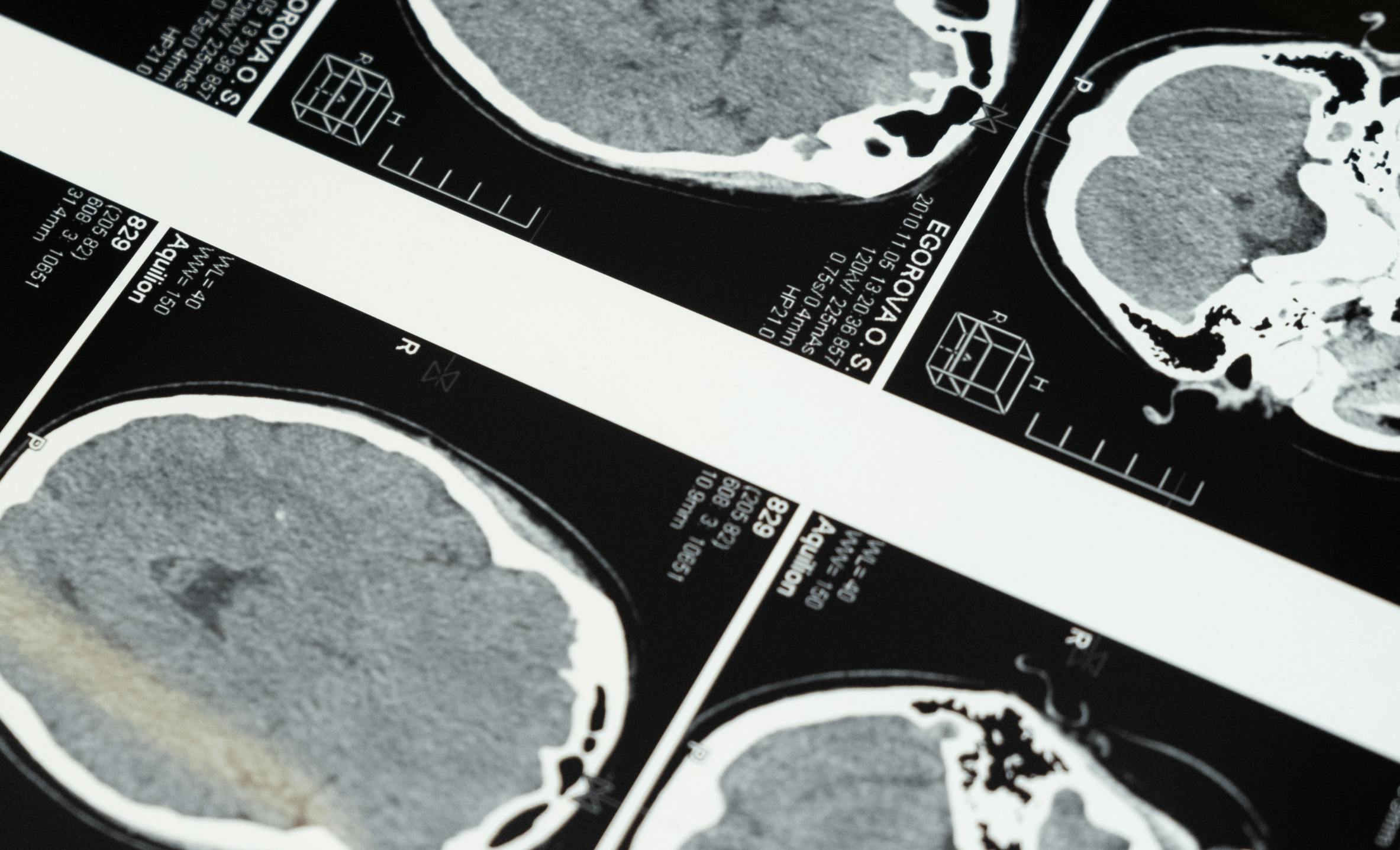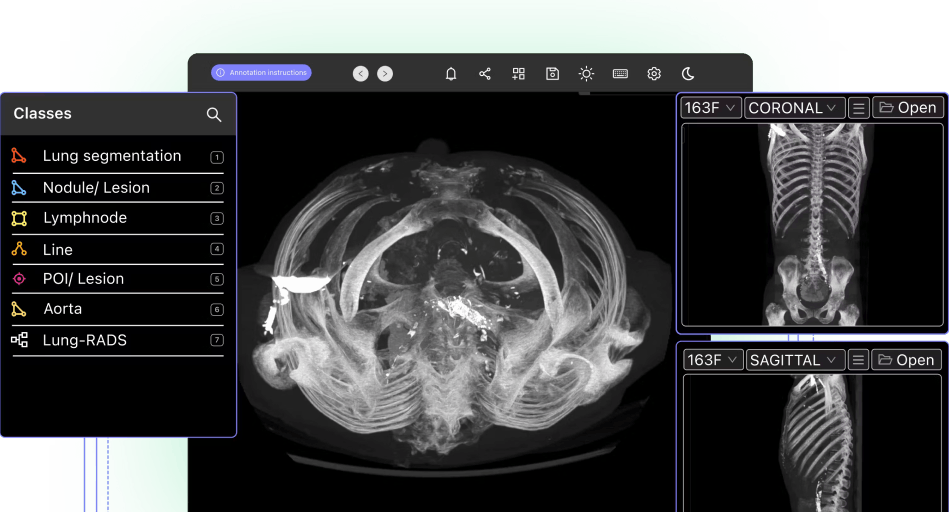Contents
Introducing Customer: RapidAI
Problem: Managing Annotations for High-Volume Data Projects
Solution: A Centralized Platform with Annotation Review and Interpolation Features
Results: More Efficient Data Labeling Processes


Reducing MRI and CT Annotation Time by 70% for Rapid AI
RapidAI develops AI that helps medical professionals identify and provide treatment for stroke victims. The company works with multiple annotators to label vast datasets of medical imaging. When managing the annotation and review process for large projects became unwieldy, the company turned to Encord’s platform for a seamless, centralized annotation experience.
Introducing Customer: RapidAI
For decades, doctors believed that only patients who sought care within a few hours of suffering a stroke would benefit from treatment. However, Dr. Greg Albers and Dr. Roland Bammer thought that with better technology, the window for care could be extended and more people with cerebrovascular disorders could be saved.
When diagnosing stroke patients, doctors use perfusion and diffusion imaging. However, perfusion imaging is a complicated process: obtaining the results is time-consuming, and perfusion scans provide a lot of information that doctors must compile and analyze quickly. If doctors had more immediate access to a summary image that provided meaningful information, they could quickly identify patients who would benefit from care, extending the time frame for treatment.
In 2012, Albers and Bammer founded RapidAI. Building on the technology they’d developed at Stanford University; the company provides brain imaging software tools designed to help doctors extract greater meaning from patient data. By creating high-quality images from diffusion and perfusion data, RapidAI’s technology assists neurovascular and vascular teams in making faster, more accurate diagnoses and treatment decisions.
In support of the founding mission, RapidAI has analyzed more than 7 million scans. The company is the exclusive advanced neuroimaging partner for the World Stroke Organization, and today, more than 2,000 hospitals in 100-plus countries use the Rapid platform to diagnose cerebrovascular disorders, such as strokes and aneurysms.
Problem: Managing Annotations for High-Volume Data Projects
To train a model, RapidAI’s machine learning teams need thousands of labeled CT, CTA, MR, and MRA images. Each training project consists of about 500 cases, with between 30 and 200 CT image slices per case. If the case contains CTA scans, that number is closer to 1000 slices.
RapidAI’s annotation team consists of many highly trained annotators – with several board-certified diagnostic radiologists and subspecialists acting as reviewers. Initially, open-source labeling tools were used. As the project grew in complexity and size, the need for a robust management system and a seamless export process became essential so the company began to look for an online platform that could help them manage the annotation and review process more efficiently.
Solution: A Centralized Platform with Annotation Review and Interpolation Features
RapidAI tried out several online annotation vendors when looking for an online platform to manage and label training data.
For particular diseases, the shape of the pathology changes substantially in the peripheral slices of a case. In the middle slices, however, it maintains a uniform shape. With Encord’s interpolation tool, when RapidAI’s annotators reach the middle slices, they only have to label one out of every five images. Encord’s DICOM annotation tool captures the shape of the pathology, interpolating the label on the slices the annotators skipped. In a case with 100 slices, annotators only have to label about 30 images.
Encord’s reviewer function also helped RapidAI improve the efficiency of its annotation process. Using this feature, neuroradiologists can leave notes for annotators, correcting mistakes and providing guidance for improvement. They can also reject a case and label it directly. That way, annotators can then compare their original work against a reviewer’s to identify and learn from their makes. This feature is especially useful because as the team is gathering the labeled data they need, they are simultaneously teaching annotators to improve their labeling skills.
Results: More Efficient Data Labeling Processes
With Encord’s interpolation tool, Rapid AI’s team has increased the speed at which they can label data resulting in as much as a 30-minute reduction in annotation time per case.
Encord and RapidAI’s team communicate directly on Slack, and should RapidAI encounter a bug or issue, Encord responds immediately and fixes it within a few hours. Encord’s team has also worked with them to customize the product to meet their annotation needs.
Rapid AI is in the process of expanding its technology to additional disease states, such as pulmonary embolisms. As they expand, the company will continue to build out a pipeline of projects that each require annotating thousands of MRI and CT scans. By working with a centralized platform that effectively manages the annotation process and speeds up labeling, the company can increase the speed at which its AI enters production and, ultimately, saves lives.

Explore our products
Yes. In addition to being able to train models & run inference using our platform, you can either import model predictions via our APIs & Python SDK, integrate your model in the Encord annotation interface if it is deployed via API, or upload your own model weights.
At Encord, we take our security commitments very seriously. When working with us and using our services, you can ensure your and your customer's data is safe and secure. You always own labels, data & models, and Encord never shares any of your data with any third party. Encord is hosted securely on the Google Cloud Platform (GCP). Encord native integrations with private cloud buckets, ensuring that data never has to leave your own storage facility.
Any data passing through the Encord platform is encrypted both in-transit using TLS and at rest.
Encord is HIPAA&GDPR compliant, and maintains SOC2 Type II certification. Learn more about data security at Encord here.Yes. If you believe you’ve discovered a bug in Encord’s security, please get in touch at security@encord.com. Our security team promptly investigates all reported issues. Learn more about data security at Encord here.
Yes - we offer managed on-demand premium labeling-as-a-service designed to meet your specific business objectives and offer our expert support to help you meet your goals. Our active learning platform and suite of tools are designed to automate the annotation process and maximise the ROI of each human input. The purpose of our software is to help you label less data.
The best way to spend less on labeling is using purpose-built annotation software, automation features, and active learning techniques. Encord's platform provides several automation techniques, including model-assisted labeling & auto-segmentation. High-complexity use cases have seen 60-80% reduction in labeling costs.
Encord offers three different support plans: standard, premium, and enterprise support. Note that custom service agreements and uptime SLAs require an enterprise support plan. Learn more about our support plans here.
